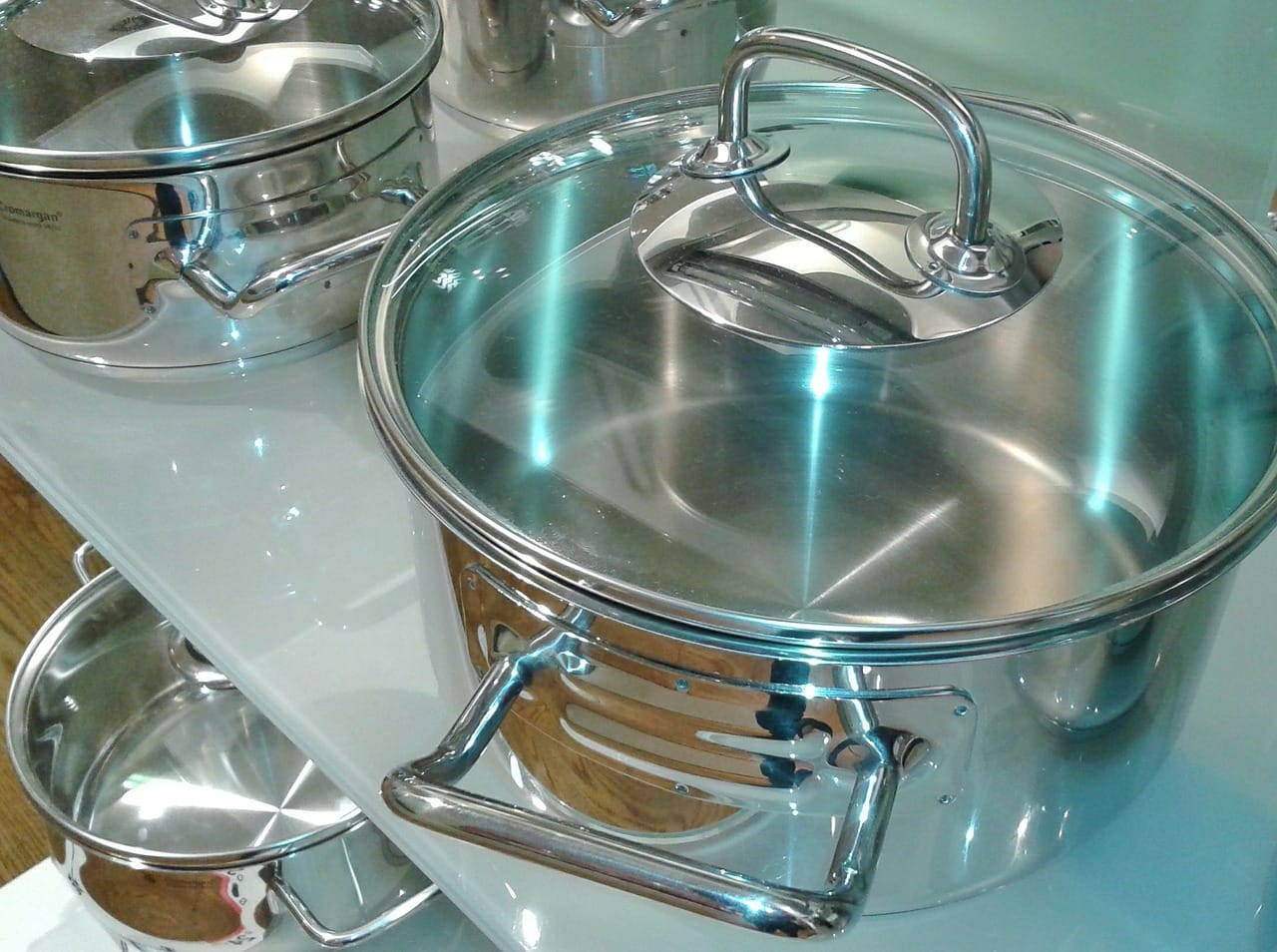Are you in the market for new pans and pots? Before you buy something new or nonstick, you need to know the different cookware materials and their pros and cons. The truth is that you have several options as far as cookware is concerned. In fact, it may be a bit overwhelming. For instance, which material can last longer? Which is the best? By understanding the pros and cons of each material, you can easily find one that suits your cooking style.
Cast Iron
Cast iron is nearly indestructible, and it is an old-fashioned cooking material that is porous and provides a lot of flavors when it is well-maintained. You should note that it is durable and affordable. Moreover, it is versatile and can handle a lot of heat from the oven to the stovetop. The good thing about cast iron is that it has excellent heat retention capabilities, which make it great for cooking the foods evenly. However, this material is not suitable for cooking acidic foods, and it is likely to rust if not well-maintained.
Enameled Cast Iron
This iron has a porcelain coating that prevents rust and makes it perfect for easier cleaning. Moreover, it can transition from the stovetop to the oven. The good thing about this material is that it offers all benefits of cast iron, but it is easier to clean and does not need seasoning. Thus, it is perfect for cooking acid foods as you do not have to worry about your food reacting with this material. Unfortunately, it is not a quality nonstick product.
Stainless Steel
You should note that stainless steel is quite a popular material for cookware. However, it is not made equal, and higher-end lines can deliver great results. Since it is non-reactive, it means it cannot affect the taste of food when cooking with alkaline or acidic ingredients. In fact, it also heats up quickly. Since it is dishwasher safe, it is easy to clean. The only issue with this material is that it does not distribute heat uniformly.
Carbon Steel
Carbon steel cookware is made of an alloy of iron and carbon. Ideally, it is durable, like cast iron, but thinner. You will find this type of cookware great for retaining heat for even cooking. Moreover, you will find it to be lightweight. When it is seasoned properly, it has excellent nonstick properties. However, it needs seasoning to maintain, and you will find it quite difficult to clean.…


 Reduced Utility Bills
Reduced Utility Bills Reduced Incidence of Emergency Repairs
Reduced Incidence of Emergency Repairs